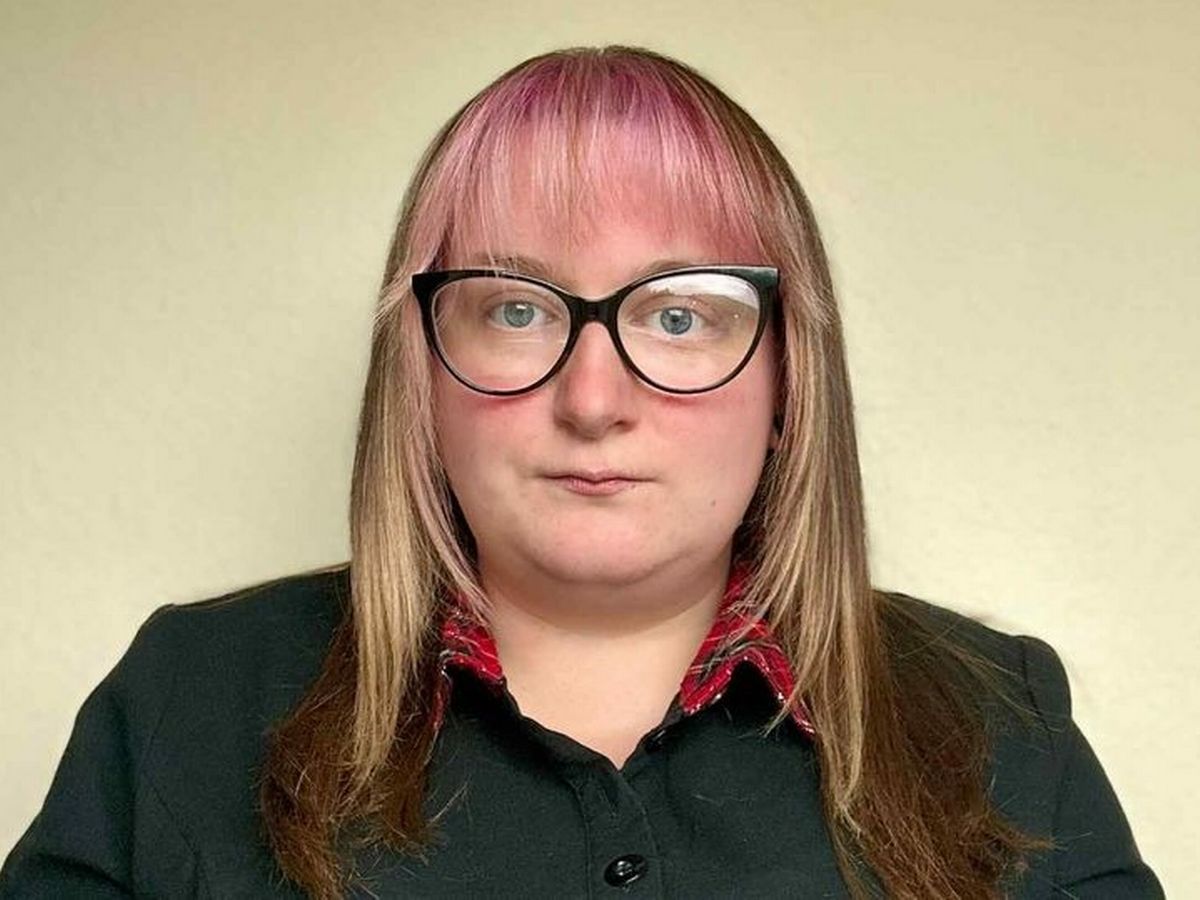By Isla Storie,Jacob Farr
Copyright dailyrecord

A Scots mum has spoken about how she had no choice but to pull her daughter out of mainstream school and teach her at home. Melissa Hunter, from Liberton, Edinburgh , said she ended up having to leave her job to home-educate her daughter full-time, following several failures from schools in the capital. The 31-year-old’s daughter, now aged 13, began suffering from anxiety at the age of 10, while in P6 at Craigour Primary School. Her mum believes it is linked to undiagnosed autism and ADHD, but the family are still waiting for an official diagnosis from the Child and Adolescent Mental Health Service (CAMHS) at NHS Lothian . Melissa criticised the provision put in place to support her daughter at school, but accepts at least some delayed assistance was given. However, she said the youngster had been “left to rot” by the council as she claimed secondary schools completely failed her. Like many children in Edinburgh’s schools, her daughter was put on a reduced timetable, reports Edinburgh Live . Our sister title revealed last week that more than 1,100 pupils across the city are currently attending school on a part-time basis. This equates to around 140 primary school pupils and 978 in secondary schools, as concerns are raised that the measure is used as a last resort when schools struggle to meet complex needs due to a lack of appropriate resources. Melissa said: “We were left with no other choice than to deregister her as we were not getting the support she needed within mainstream education and we could not get a specialist place without an official diagnosis. “The council asked us if there was anything they could do. I asked for a place at a special school. It was silent for two weeks, before we got an email to say she was deregistered. “There has been a lot of confusion and we are feeling a bit lost with homeschooling. We asked the council and charities for support but we were told to go to Facebook groups as there are communities of homeschoolers in Edinburgh. So we have to figure it out by ourselves. We are being left to rot. “If a child does not fit in this small little box then they are on their own. At least when she was at primary someone would check in but by the time she got to high school she was abandoned. My daughter feels like no one cares about her.” She added her daughter experienced panic attacks and would see figures when she was distressed – her “anxiety demons”. The fear around attending school began affecting her physically, and she started suffering from stomach pain and sore legs. She continued: “At the tail end of primary six she would completely break down on the way to school. Some things were eventually put in place to help her with anxiety and a soft start but it took a while for this to be actioned. “Most days she would not go in. A child planning meeting (CPM) was organised and a separate space was arranged for her in class so she could self-regulate in primary seven. “At this time we were aiming to go in during the morning or were trying after lunch. It wasn’t a set reduced timetable, it was open ended and stayed in place until she finished school. “There were full weeks without her ever attending school. As a parent I was so confused, I didn’t know what to do or how to make it better. “The primary would send work home but access to the curriculum was not great. We did not feel supported at all.” Melissa said the school set up support for learning halfway through her daughter’s P7 year, and she was provided with an Instructional Support Teacher (IST), who was described as “lovely” and “committed”. They would carry out online sessions with her daughter, who also received weekly visits from a therapy dog. The IST was key in supporting her while transitioning to secondary school last year. However, a lack of support available once she started led to her situation deteriorating again. Melissa said: “She found high school very overwhelming and overstimulating and ultimately she was unsupported. At first she managed a week but it trickled down into just mornings or afternoons. “Then it started again, she broke down on the way to school and did not want to go in. No CPM was organised until October and only after I chased it – this should have been organised before she arrived. “An IST was agreed initially but then we were told there was a clash of timetables and our daughter would not be receiving one. This made me really angry, it was a promise that was made which was not followed through on. “They arranged for her to have days in the wellbeing hub but unbelievably these were on the days she was not due in. An art therapy was also offered which failed to materialise. “She was placed on a formal part-time timetable at Liberton but she only managed a couple of sessions before completely withdrawing. Ultimately it was down to the school making promises they could not keep.” She described how her daughter was left without an education, with very little of the curriculum coming from school into their home. She added her “bright child” was starting to fall behind her classmates. She explained: “She is so bright, she still researches her own stuff but she has been failed by the education system. There is no real access to the curriculum from home which means she is now falling behind her peers when she was previously on par. “A decision was made to move her to Castlebrae for her second year as we had heard great things but again all we experienced were problems. The application kept being lost and it took a senior council official to step in to resolve the issue. “A week before she was due to end first year at Liberton, Castlebrae reached out for a visit. She was very hopeful, the school seemed aware of her issues and everything was positive. “But again we were let down. We were failed by the council through a muddled transport agreement for getting to the school, no CPM was set up and no pre-agreed timetable – the communication was terrible. “Our daughter became so anxious due to the chaos of the situation. It became so bad we had to turn around and say we are not doing this due to how it was impacting her. “We submitted complaints to the council about how everything has been handled with regards to her education.” Melissa then submitted an application for her daughter to attend Kaimes School, which educates children with autism and additional needs. However, she was told this was not possible without a formal diagnosis from CAMHS. The CAMHS referral had been put through in October 2022, but several parties had “dropped the ball”. The family have been left with no choice but to home-school their daughter . The mum expressed her gratitude to Vocal for Unpaid Carers and Canongate Youth, who have given the family vital support. She added that Canongate, a youth work charity , tried to get the CAMHS referral expedited, but were told unless her daughter was “suicidal, self-harming or pregnant”, it would not be possible. She left her job as an assistant retail manager to make caring for her daughter, alongside her husband, her sole focus. This caused her own mental health to deteriorate , prompting her to reach out to unpaid carers charity Vocal. She added: “I became quite depressed at this time, it was quite difficult to be honest,” Melissa said. “We did not know how to cope and our daughter was getting really overwhelmed and all I wanted was to solve the problem for her. “Our whole life stopped as she would only feel safe at home. I had to quit my job as I was constantly getting calls at work to go and pick her up from school.” Daniel Johnson, MSP for Edinburgh Southern said: “Melissa and her daughter have been let down badly by the system. The failure of CAMHS to assess the teen for a neurodevelopmental condition has led to a cascade of neglect, leaving a bright young girl passed from school to school without the proper support in place. “In May the First Minister said that a neurodevelopmental diagnosis is not required to receive support but this pupil’s experiences with the education system tells a very different story. I have been pressing for an urgent assessment by CAMHS and for the Council to urgently put in place a plan of support to enable her to receive the education she is entitled to.” The City of Edinburgh Council’s education, children and families convener James Dalgleish said the authority has several measures in place to support an inclusive education, but called for more government funding to be made available to help meet the rising numbers of pupils with additional support needs. The Scottish Government previously said they were committed to delivering an inclusive education for all children. They added local authorities, including Edinburgh Council, oversee the delivery of education and have a statutory duty to provide for and to review the support they provide to ASN pupils. Education Secretary Jenny Gilruth held a cross-party roundtable with the local government earlier this month to review ASN and discussed what further actions can be taken to support pupils. They are currently considering the next steps to inform the scope of the ASL Review. They added they have spent “over £1billion” on ASN in the 2023-2024 school year through local authorities. NHS Lothian have been contacted for comment over CAMHS waiting times.



